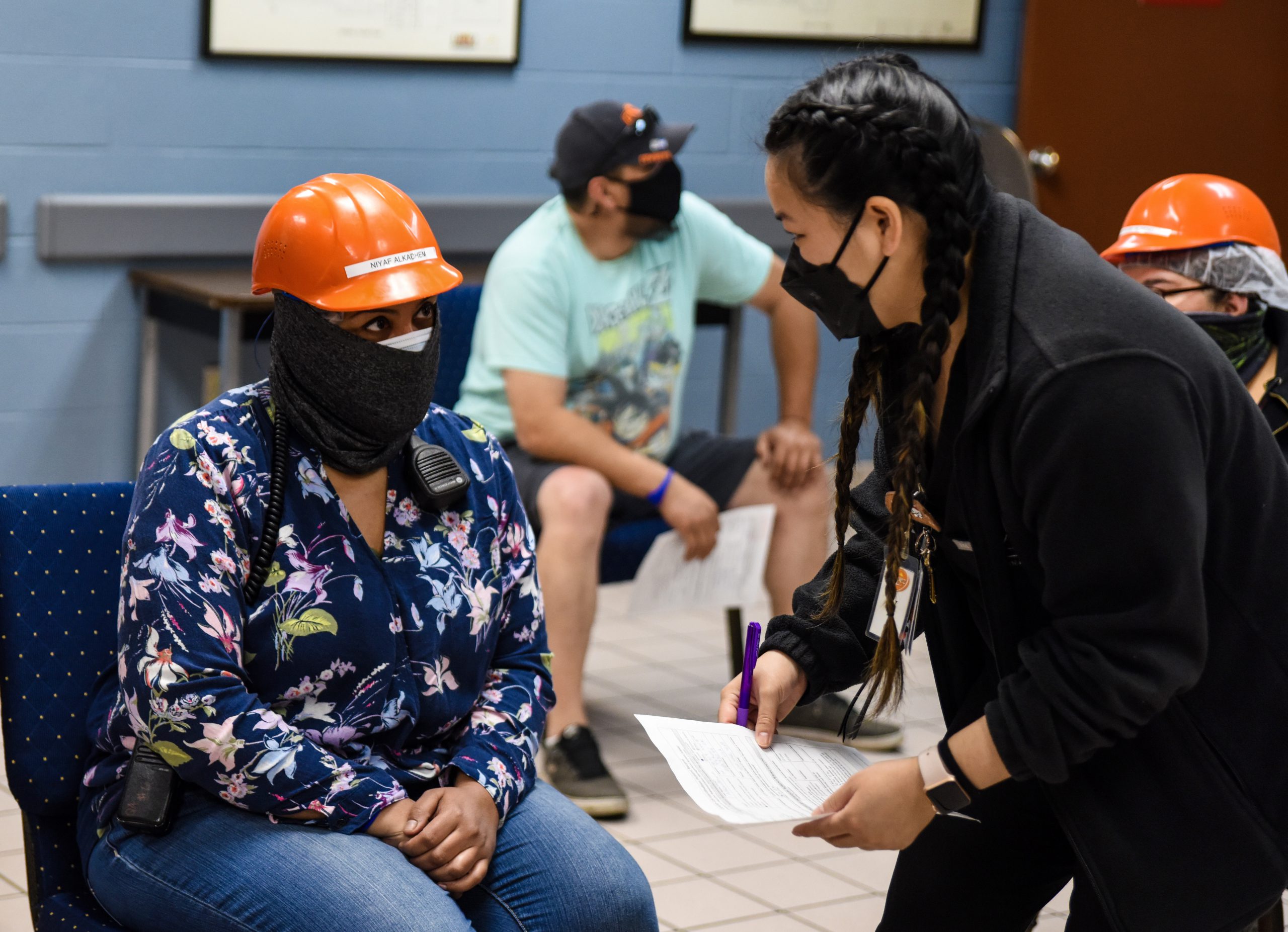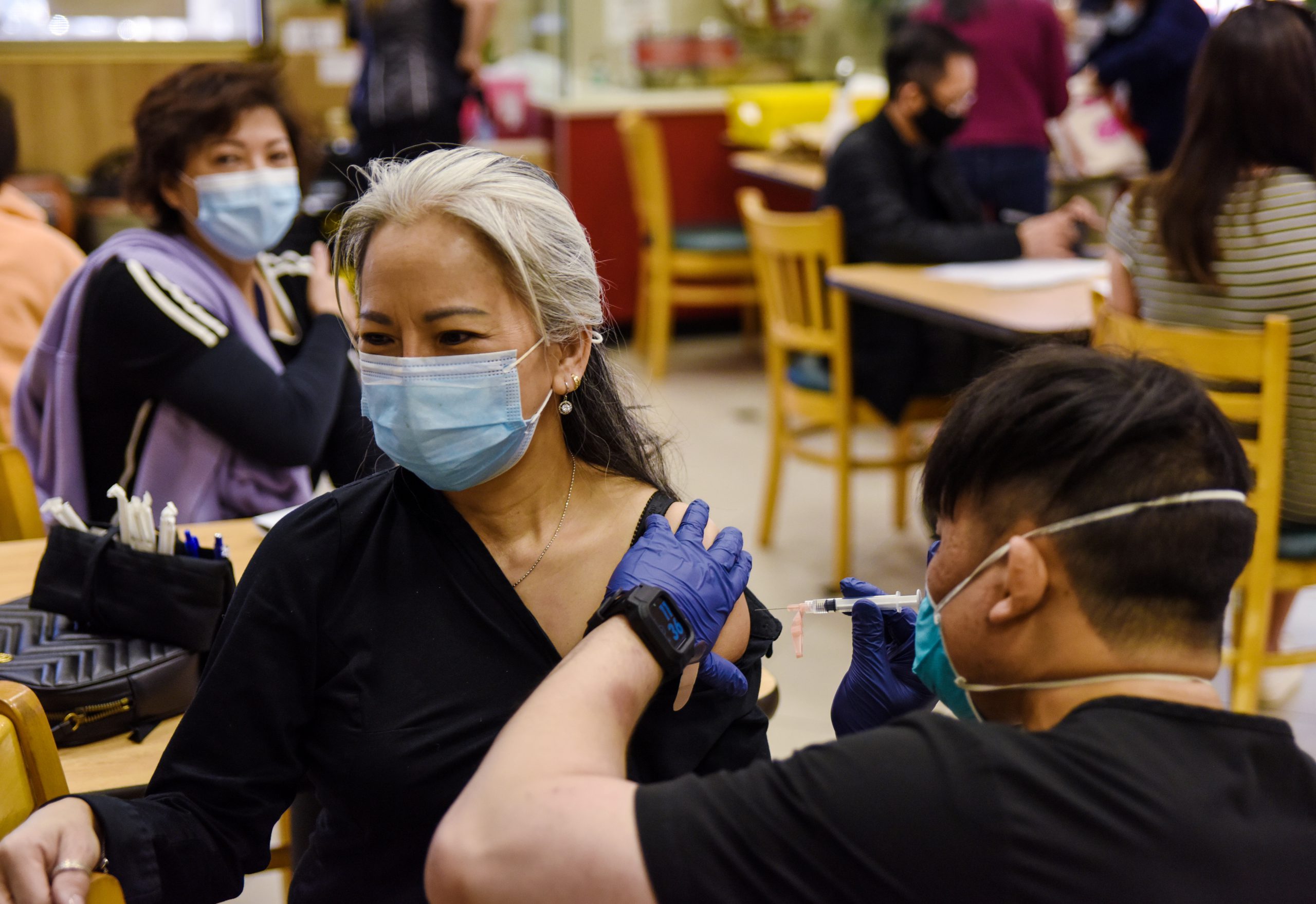Indianz.Com > News > Bipartisan bill brings long-overdue boost to urban Indian health providers

Bipartisan bill brings long-overdue boost to urban Indian health providers
Tuesday, May 25, 2021
Indianz.Com
WASHINGTON, D.C. — As the first Americans continue to feel the disproportionate impacts of the coronavirus pandemic, a bipartisan group of lawmakers is seeking to bring more resources to urban Indian communities.
Although the majority of American Indians and Alaska Natives live in urban areas, barely 1 percent of the Indian Health Service budget has gone to urban Indian health providers Funding has finally started to increase and only as a result of COVID-19 relief legislation passed by Congress.
Lawmakers from both parties are now hoping to expand on those efforts. A bill being introduced on Tuesday offers a simple solution that will help improve the facilities and clinics that serve urban Indians across the nation.
“Urban Indian Organizations are a lifeline to Native Americans living in urban areas across California,” Sen. Alex Padilla (D-California), a new member of the U.S. Senate, said in introducing the Urban Indian Health Providers Facilities Improvement Act. [PDF]
“Yet, UIOs are prohibited from using Indian Health Service funding for facilities, maintenance, equipment, and other necessary construction upgrades,” added Padilla, whose home state of California is home to the largest population of American Indians and Alaska Natives in the United States.
UrbanIndianHealthProvidersFacilitiesImprovementAct
The Urban Indian Health Providers Facilities Improvement Act is just two pages long. Yet it finally resolves the situation by allowing urban Indian providers to utilize IHS funds to improve, update or renovate their facilities.
“During the pandemic, many UIOs couldn’t get approval for ventilation upgrades, heaters, generators, and weatherization equipment,” observed Padilla. “Removing this unjust burden on UIOs is a commonsense fix, and would allow them to improve the quality of the culturally competent care that they provide.”
The National Council of Urban Indian Health (NCUIH) has been among the many voices pushing for the facilities fix. According to the organization, UIOs will need at least $80 million to start improving the spaces that serve their patients and clients.
“Facility-related use of funds remains the most requested priority for UIOs,” Francys Crevier, a citizen of the Algonquin First Nation who serves as NCUIH’s chief executive officer, said in testimony to Congress in March, a year into the COVID-19 pandemic.

Historically, only about 1 percent of the IHS budget has gone to UIOs. In fiscal year 2020, which started in the October prior to COVID-19, only about $58 million went to these providers. The American Rescue Plan Act, which was pushed by President Joe Biden and Democrats in Congress, mandated at least $84 million for UIOs. Last month, the IHS announced it would be distributing a total of about $250 million for urban Indian programs, a significant increase. The law provided an additional $6 billion to the IHS, of which $4.3 billion in distributions were announced in the April 16 letter to tribes and UIOs. Another $1.7 billion will also be distributed by the agency. ihs041621Congratulations to our 2021 Urban Indian Health Congressional Champion Award recipients: @SenatorLankford (R-OK), @SenTinaSmith (D-MN), @RepRubenGallego (D-AZ), and @repdonyoung (R-AK)! Thank you for your leadership on #UrbanIndianHealth and for speaking at our Keynote tomorrow! pic.twitter.com/qS8k657kgL
— National Council of Urban Indian Health (@NCUIH_Official) May 24, 2021
Search
Filed Under
Tags
More Headlines
Native America Calling: A sample of Native Guitars Tour 2024
Native America Calling: How Native literature is changing the mainstream narrative
Native America Calling: No ordinary animal
Native America Calling: Safeguards on Artificial Intelligence
NAFOA: 5 Things You Need to Know this Week
Chuck Hoskin: Cherokee Nation takes the lead for our environment
Native America Calling: Earth Day assessment for Native peoples
Cronkite News: Gathering addresses ‘epidemic’ among Native people
VIDEO: Cody Desautel on tribes and federal forest management
AUDIO: Legislative Hearing on Discussion Draft of Forest Management Bill
Native America Calling: Remembering the 1974 Navajo border town murders
Native America Calling: Can the right approach close the Native immunization gap?
Cronkite News: Long COVID cases remain high in Arizona
Native America Calling: Eyes in the sky for development, public safety, and recreation
Native America Calling: Three new films offer diverse views of Native life
More Headlines
Native America Calling: How Native literature is changing the mainstream narrative
Native America Calling: No ordinary animal
Native America Calling: Safeguards on Artificial Intelligence
NAFOA: 5 Things You Need to Know this Week
Chuck Hoskin: Cherokee Nation takes the lead for our environment
Native America Calling: Earth Day assessment for Native peoples
Cronkite News: Gathering addresses ‘epidemic’ among Native people
VIDEO: Cody Desautel on tribes and federal forest management
AUDIO: Legislative Hearing on Discussion Draft of Forest Management Bill
Native America Calling: Remembering the 1974 Navajo border town murders
Native America Calling: Can the right approach close the Native immunization gap?
Cronkite News: Long COVID cases remain high in Arizona
Native America Calling: Eyes in the sky for development, public safety, and recreation
Native America Calling: Three new films offer diverse views of Native life
More Headlines